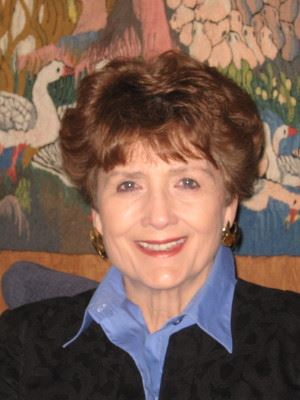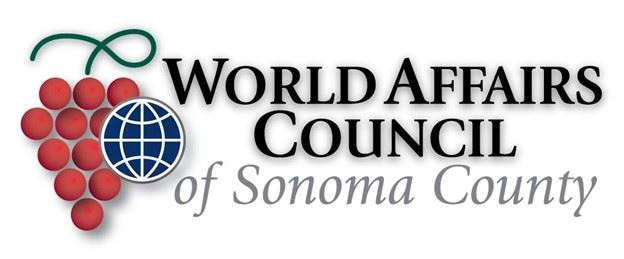Linda Lambert
Meet Linda Lambert, WACSC Board Member

Linda Lambert joined the Board in 2020, and is active on the Program Committee. She leads our all-important Think Tank — a committee of member-volunteers honing new strategies and opportunities, guaranteeing that WACSC stays vital. In this piece, Linda shares details of her rich and rewarding life to date.
I was born in Chicago, but grew up in West Mineral, Kansas, a small coal-mining town of about 300 where my parents were from. Unfortunately, I felt like a fish out of water there, as though I’d been accidently dropped in a strange land. Perhaps this was because my mother was a liberal, flamboyant romantic who didn’t fit either.
Still, in the four-year high school of 90 students, I had a chance to do most everything, and became passionate about drama and debate. I later realized that it was the debate questions centering on politics and history that fascinated me.
I entered Pittsburg State College nearby, majoring in political science and history, and soon became involved in the Young Democrats and the seething campaign of 1959-1960. I was able to meet candidates like John Kennedy and Hubert Humphrey. Perhaps that “high” led me to marry the president of the organization.
In the next decade, I graduated from Washburn University in Topeka, had three children and worked as a social worker in Kansas City. In the KC job, I came to understand the depth of poverty and illiteracy that plagued the underbelly of many large urban areas. It was particularly the disadvantaged women and their hopeless plights I felt for — quite a sobering experience for a small town girl.
My social work also exposed me to the criminal justice system, probation and court investigation, and I became supervisor of a detention center. But I felt like I was making little difference in people’s lives. After studying my clients and learning the pathways of failure and crime, I turned to education.
We moved to California in 1972 and I continued teaching, in Castro Valley, and then became a school principal in Novato and Director of Leadership in Marin County. I married my second husband, Morgan Lambert, in 1981, and in 1983 received my doctorate in Organization and Leadership at the University of San Francisco.
During this time I began to write extensively and consult. In 1988, I was hired as a professor of educational leadership at Cal State Hayward (now East Bay). The next year I took a leave to move to Cairo, Egypt, to set up a National Curriculum Center. Our initial stay was for two years, but we returned often for years after that. Egypt was everything I — or my mother, who was convinced she was reincarnated from an Egyptian — could have dreamed of. It was challenging and fascinating, exotic and provocative. We loved the people, the history and the mystery. It was there that both my textbooks and novels began to take shape.
I continued at Cal State for 14 years. Between 1995 and 2016 I wrote eight texts on educational leadership and women’s ways of leading, as well as fiction: the Justine Trilogy (The Cairo Codex, The Italian Letters and A Rapture of Ravens: Awakening in Taos). My texts and consulting took me to Thailand, Malaysia, Morocco, Mali, Australia, Mexico, England and Italy among other places. Many texts have been translated into Spanish, Chinese, Malay and Lithuanian.
In 2014 Morgan and I moved from The Sea Ranch to Santa Rosa and became involved with the World Affairs Council of Sonoma County, The Unitarian Universalist Congregation, the Democratic Party and the Advisory Board for Roseland Schools. My life’s themes continue: social justice, world affairs, politics, writing and education.
This has been (and still is) an exciting and fulfilling life. Rewards have come from many quarters, including my marriage, career, friendships, 11 grandchildren and 4 great-grandchildren.
Address: P.O. Box 1433 Santa Rosa, CA 95402 |
All information on this website is Copyright (c) 2023 World Affairs Council of Sonoma County
World Affairs Council of Sonoma County is a 501(c)3 tax-exempt non-profit educational organization.
